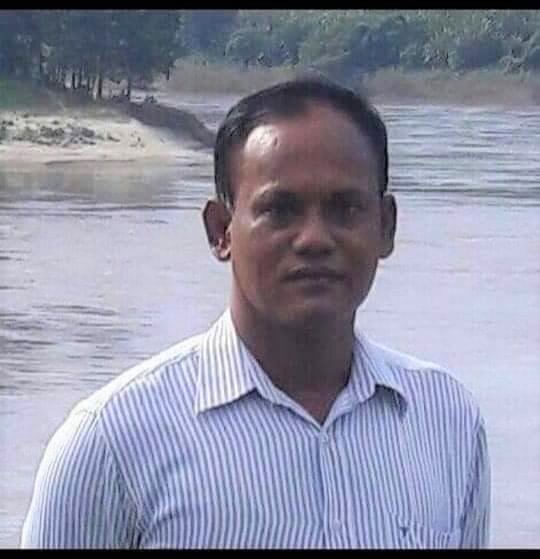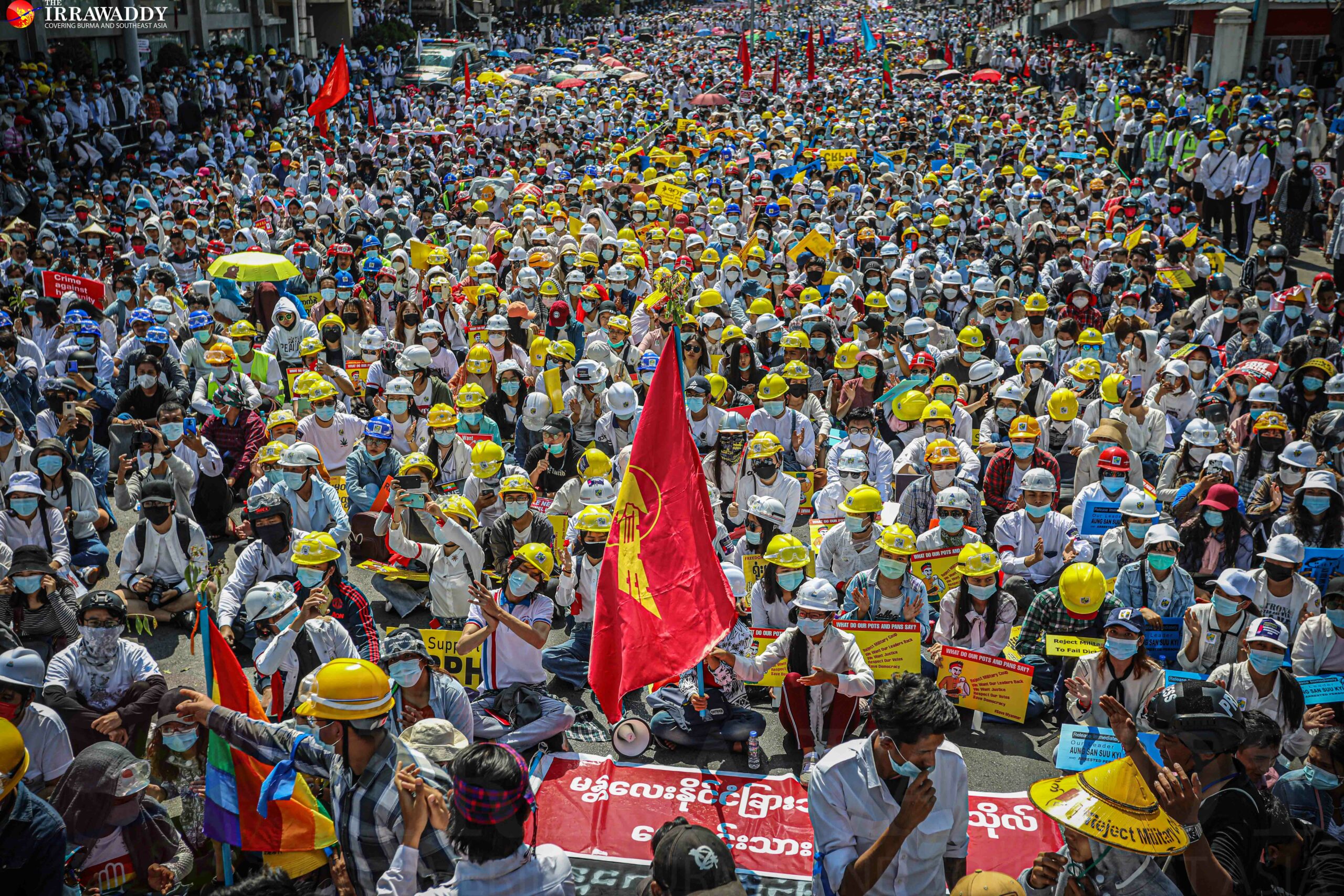Sacrifice is not sacrifice for many people of Myanmar. It’s just a choice.
Those who really sacrificed or, in other words, gave up something valuable of their own in order to help other people or the welfare of the country, or its entire population, don’t even think of the word sacrifice.
On Monday, two sad and tragic incidents which define the meaning of sacrifice were imprinted respectively in this dark age of Myanmar’s history. But these two incidents are just typical of everyday life here under military rule since the coup on Feb. 1 and, in retrospect, under the long history of previous military dictatorships.
On Monday morning, the detained leaders of the elected but overthrown government, State Counselor Daw Aung San Suu Kyi, President U Win Myint and Naypyitaw Council chairman Dr. Myo Aung, appeared in court for the first time since the military led by Senior General Min Aung Hlaing staged a coup on Feb. 1.
They found themselves in the dock of a court facing multiple legal charges by the military regime, after having worked to restore democracy to the country over the past 30 years. They are all former political prisoners.
For Daw Aung San Suu Kyi herself, she was put under house arrest for a total of 15 years under the previous military regimes (six years from 1989 to 1995; one and a half years from 2000 to 2002; seven and a half years from 2003 to 2010) for her leading role in the country’s pro-democracy movement.
In 1989, when she found herself a political prisoner incarcerated by the then military regime for the first time, she was a 44-year-old woman. Now the 75-year-old finds herself a prisoner again.
It is believed, however, that she and her colleagues, including ousted President U Win Myint, would not even think of the word “sacrifice” to describe what they have done or the price they have paid for the country and its people to date.
They would believe that it’s their “choice”, not a “sacrifice”, as Daw Aung San Suu Kyi once said in an interview when asked about her sacrifice in the form of lengthy imprisonments and the other things she has endured, including living apart from her family.
These high-profile prisoners are not the only ones who conceive of their endeavors for the welfare of the country and its entire population as a “choice”.
Some unknown people have paid a higher price for what they have chosen.
On that Monday night, the wife of 53-year-old pro-democracy activist Ko Soe Moe Hlaing, known as Ko Mae Gyi, received a phone call from authorities saying that her husband was dead. On Saturday, only two days earlier, the military regime’s soldiers and police arrested Ko Mae Gyi with some other villagers in a village in Bago Region. Witnesses saw the troops beating his head with rifle butts during his arrest.

His wife and friends believed that the father of five children was tortured to death, as he wasn’t suffering from any deadly diseases.
Before he died, Ko Mae Gyi found himself arrested and tortured again, just as he had exactly 30 years previously back in 1991, when he was a 23-year-old. He was arrested in December of that year after hundreds of students staged a protest on the Yangon University campus, demanding that detained Daw Aung San Suu Kyi and students be released on Dec. 10, when she was awarded the Nobel Peace Prize.
In 1988, when the military staged a coup to crack down on the nationwide pro-democracy movement, Ko Mae Gyi fled to the Thai-Burma border to take up arms to fight against the then regime. He became a member of the students’ army, known as the All Burma Students Democratic Front (ABSDF), before coming back to the country.
Due to all his pro-democracy activities, he was sentenced to 15 years’ imprisonment and served 13 years from 1991 to 2003. Many of his fellow inmates said he was a staunch pro-democracy activist full of courage and honesty. After his release, Ko Mae Gyi actively worked on philanthropic projects and regional development in Bago until his latest arrest. He also established a network in the region to offer free education to children.
Like Daw Aung San Suu Kyi and many other pro-democracy activists, he wouldn’t have thought what he was doing was a sacrifice. But Ko Mae Gyi wouldn’t have imagined that he would be killed for his good work and dedication to his country.
For him personally, perhaps, he might have suffered more emotionally due to the fact that he was tortured to death by squads of his own brother, who is deputy minister of home affairs and chief of police of the regime led by Senior General Min Aung Hlaing.
His elder brother, Lieutenant General Than Hlaing, was promoted to deputy minister and chief of police following the coup and is one of the key people responsible for the brutal crackdowns on civilians. Ko Mae Gyi knew that his brother was among those who are responsible for killing more than 800 people in anti-regime protests over the past nearly four months since Feb. 1.

It’s sad that his soul could no longer find his own body due to his choice—not sacrifice.
Like Ko Mae Gyi and Daw Aung San Suu Kyi, countless people of many generations have paid a high price. Myanmar recently witnessed throngs of its Gen Z youth taking to the streets to defy the regime by risking their lives. The momentum of the Spring Revolution they created is still in full swing. But what they have been doing shows that they aren’t afraid to risk their lives.
No doubt many people in this country will continue to sacrifice their lives in different ways, of their own choice. Their task of establishing democracy will remain unfinished as long as the military dictatorship still exists in this country.
Naing Khit is a commentator on political affairs.
You may also like these stories:
73 Children Killed by Myanmar Junta Forces Since Coup
More Than 70,000 People Displaced as Fighting Rages in Eastern Myanmar
Two Myanmar Resistance Fighters Killed in Sagaing Clash

















